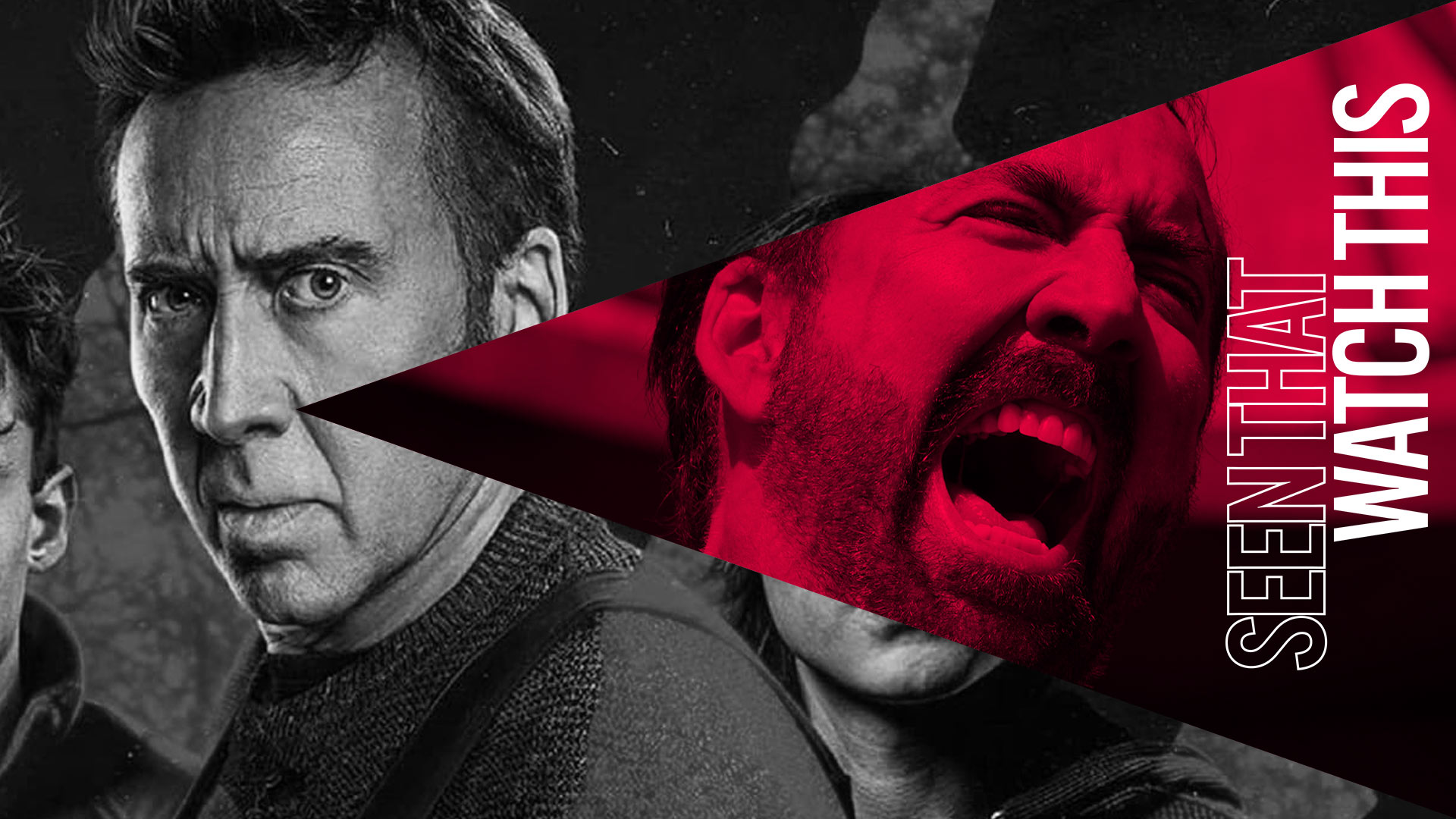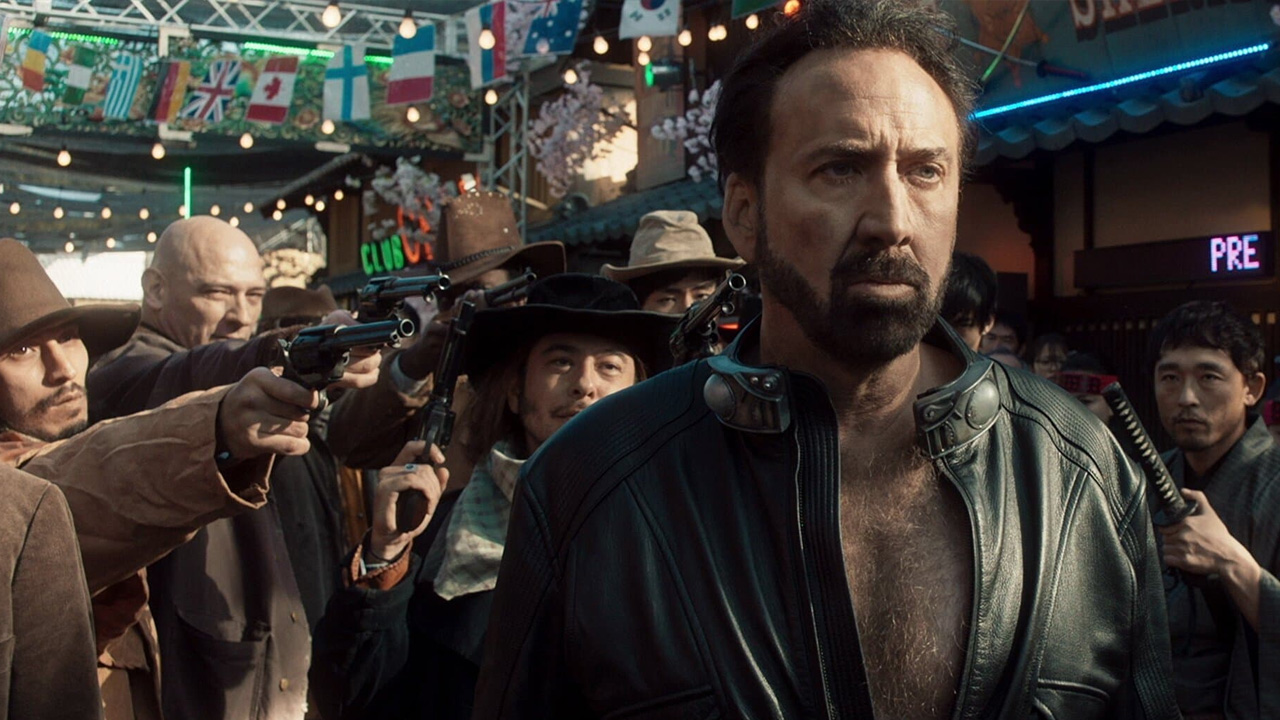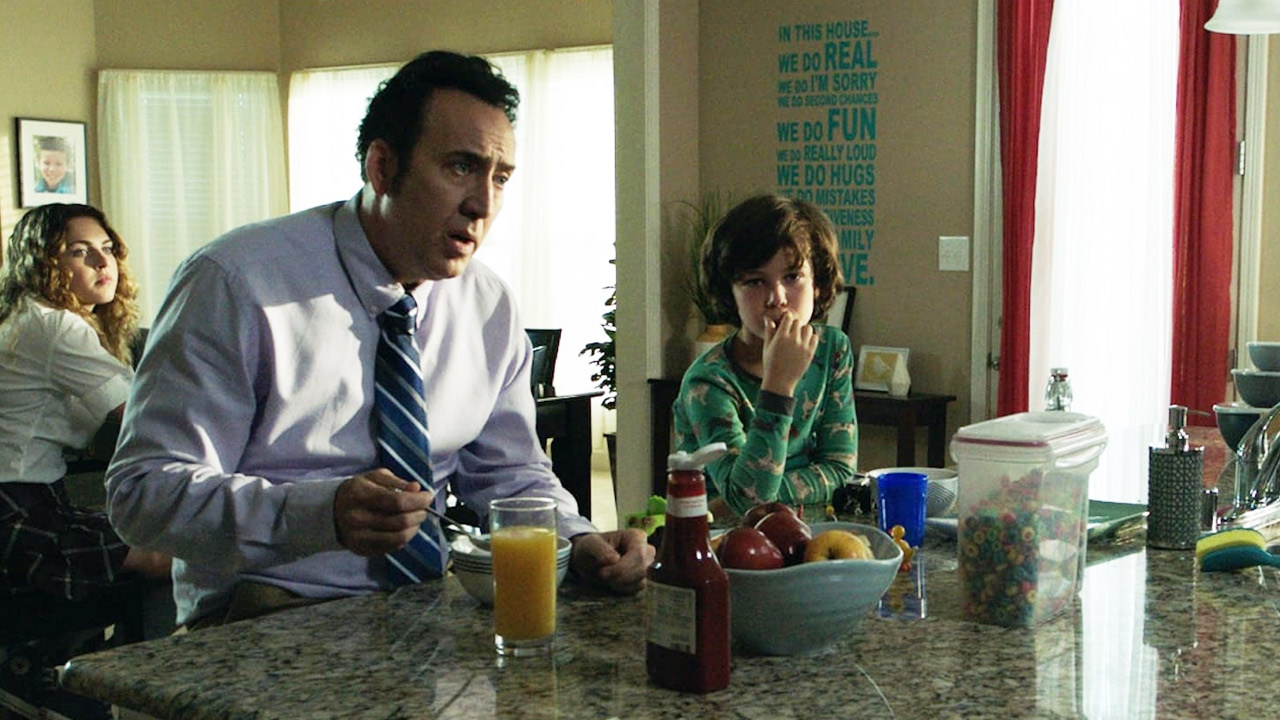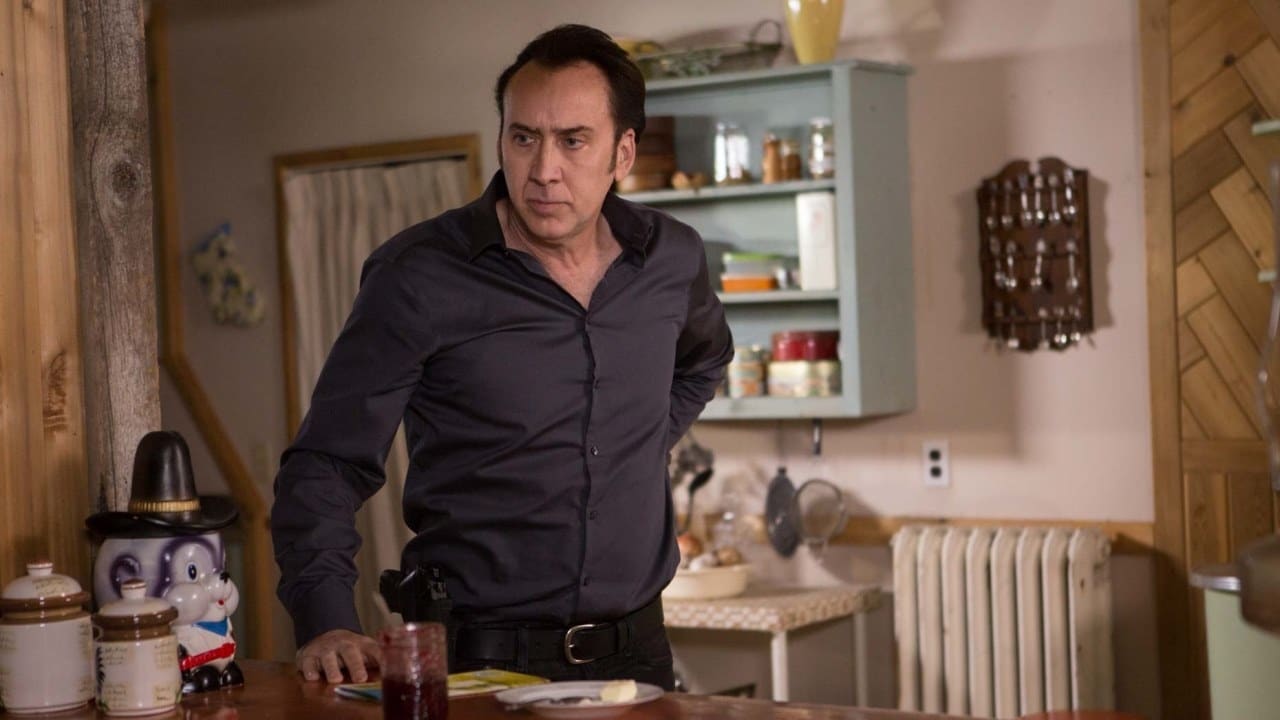Arcadian + 3 wild dystopian movies starring Nicolas Cage

Seen That? Watch This is a semi-regular column from critic Luke Buckmaster, taking a new release and matching it to comparable works. This week, he looks at the relatively restrained Nic Cage movie Arcadian and matches it to three more sensational visions of horrible dystopian worlds.
Any Nicolas Cage movie in which the star plays it straight, emphasising realism and restraint, is inevitably considered an against-type performance given the actor’s famously outré style. Such is the case in Arcadian, a dystopian drama set in the wake of a cataclysmic global event involving the invasion of earth by horrible aliens, which are unseen for a long time but eventually pushed out of the shadows and revealed as gruesome, ooze-dribbling monsters comparable in sheer fright factor to a Texan in a MAGA hat.
Cage plays Paul, who lives on a farm with two teenage boys (Jaeden Martell and Maxwell Jenkins), the trio maintaining a daily routine of fossicking for supplies and bumming around, before locking their doors and cowering inside at night. The relative peace of their lives is shattered when one of the lads fails to make it home and Paul ventures outside as the sun sets to save them. If this synopsis sounds a mite midnight movie-esque, director Benjamin Brewer maintains a deathly serious tone and Cage, as mentiond, dials back his performance.
The film’s tough ambience is established in its opening scene, when Paul navigates the back alleys of a war-torn city—the unfriendliness of this world reflected through a stony colour palette, handheld camerawork and grimy set dressing. The feeling that we’re not watching a typical Cage movie, with nary one memeable moment, swells when the star exits stage left for a considerable portion of the runtime.
Which is all well and good; not every Cage movie needs to wild and deranged. But if you are in the market for such fare, the actor’s insanely extensive oeuvre (featuring more than 100 films) can certainly scratch that itch—as the three titles below demonstrate.

Prisoners of the Ghostland (2021)
Unlike in Arcadian, society still functions in director Sion Sono’s grindhousy neo western, supplanting old school American settings with Mad Maxian freeways and wastelands. Cage’s criminal protagonist, credited only as “Hero,” is on the receiving end of this woebegone world’s rather unusual sense of justice, when the governor (Bill Moseley) frees him from prison on the proviso that he track down his missing adopted granddaughter (Sofia Boutella). But here’s the weird bit: four detonation devices are attached to “Hero” that will explode should he harm the woman or fail to find her in five days. Two are fitted to his neck; the other two are on his testicles.
Cage’s performance stoically reincarnates the lone wolf action hero, a la Max Rockatansky and the Man with No Name, navigating a treacherous world splotched with various threats and kooky characters. The film’s low-rent atmosphere has its quirks but gets less compelling as the runtime elapses (just to be clear: I said these films were wild, not good). To address the obvious question of whether one of those testie-explosives detonates, let me ask another: what kind of Nic Cage movie would it be if they didn’t?

Mom and Dad (2017)
While we’re asking questions, here’s another: what if, all of a sudden, every parent in the world wanted to kill their children? And not just wanted to but in fact grabbed the nearest steak knife and lunged at ’em? Electronic devices transmit unexplained static that make parents go murderously loco in Brian Taylor’s beserk horror movie, which frames this event as an epic mid-life criss for Cage’s family man protagonist Brent, who lives in white picket suburbia and longs for the good old days, when he drove around recklessly with a topless woman on his lap.
He doesn’t get those days back, but he does experience an exciting new life chapter when he becomes a possessed psychopath intent on murdering his offspring—thus providing a narrative justification for Cage going mental. In one scene, which Taylor must have known would become the stuff of legend, Cage attacks a pool table with a sledgehammer while singing a bastardized version of the Hokey Pokey.

The Humanity Bureau (2017)
In Rob W. King’s vision of a climate-ravaged future America, Cage walks around in a sleepy haze, as if he just wolfed down a packet of valiums or slept in for several days. This future is not far off—the year is 2030—but already America as it once was is no more, hit by environmental devastation and massive shortages of natural resources. The government has created a new agency called “The Humanity Bureau” that assesses the contributions citizens make to society, sending those who are deemed unproductive to a place called “New Eden.”
Cage plays a government employee who assesses the contributions of said citizens. The story swings into gear when he takes pity on a mother and her son, leading him to rebel against the system and investigate what exactly this New Eden place really is. The acting and staging is pretty clutzy, but the film is at least memorably bad. To add to the weirdness, I watched it in a virtual reality cinema with three screens.


























